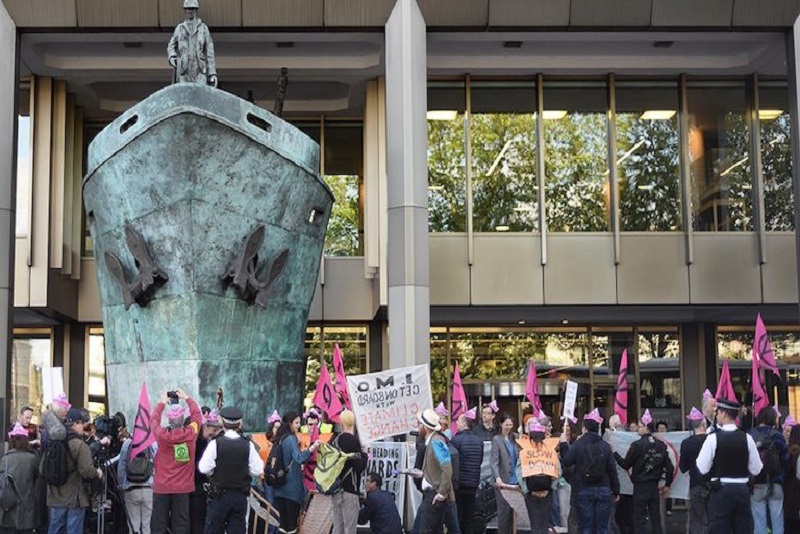
US lays out its green goals for shipping ahead of MEPC 80. Source: Splash247, Date: 15th June 2023
Source: Splash247, Date: 15th June 2023
Ahead of next month’s crunch talks at the 80th gathering of the Marine Environment Protection Committee (MEPC) at the headquarters of the International Maritime Organization (IMO), the US has weighed in, giving member states a clear view of what Washington DC would like see in terms of outcomes.
The US deputy special envoy for climate, described July’s MEPC meeting as a “key moment” to create emissions reduction targets for the sector that align with the 1.5-degree goal in a post on the Department of State’s website.
The US deputy special envoy for climate argued that the long-term goal of the current IMO greenhouse gas strategy – which includes reducing total annual greenhouse gas emissions by at least 50% by 2050 compared to 2008 – is insufficiently ambitious. The US has proposed the inclusion of a more ambitious goal – specifically, zero emissions from international shipping no later than 2050 – in the revised strategy.
“Studies show that such a goal is feasible if urgent action is taken this decade,” The US deputy special envoy for climate maintained.
To get to the long-term target, the US has called for more stringent interim goals, such as reducing total annual greenhouse gas emissions from shipping by at least 37% by 2030.
“This goal is achievable if most ships introduce what are already best-practice operational efficiencies and if even just 5% of the world’s fleet by energy volume adopts zero-emission fuels and technologies – leaving time to scale up broader adoption by 2040,” The US deputy wrote.
The US has also proposed to complement emissions reduction goals with a goal to increase energy consumption from zero- or near-zero emission fuels, given that the fuel transition is key to fully decarbonising the sector.
The US is also supporting further progress in the IMO on developing mid-term measures, including a greenhouse gas fuel standard.
“An economic measure such as a maritime emissions pricing mechanism could complement this standard,” The US deputy special envoy for climate suggested.
The US deputy special envoy for climate attended this month’s Nor-Shipping trade fair and commented that unless stricter green shipping targets are met by 2030, there can be no 2050 net zero.
“We’re in trouble, not trouble we can’t get out of, science is telling us what to do. The longer we leave it the harder and more expensive it will become. This is as large a crisis as any security threat in the world. It is also the greatest economic opportunity the world has ever known,” The US deputy special envoy for climate said while in Norway last week.
The French president is also trying to galvanise action ahead of MEPC, rallying support for a global carbon tax on the shipping industry. France is attempting to assemble a coalition of dozens of nations to endorse the proposal and has received backing from Japan and Denmark among others.
